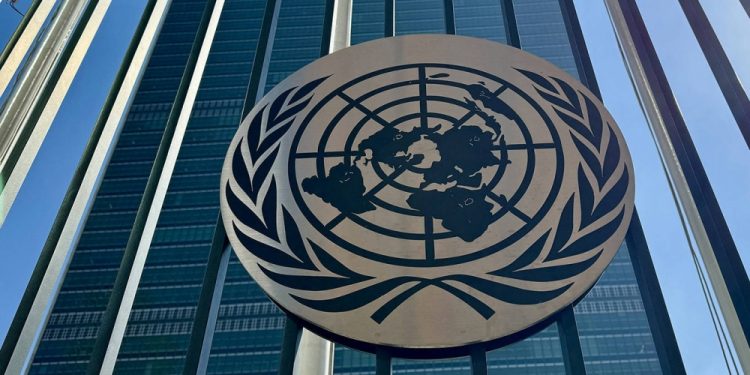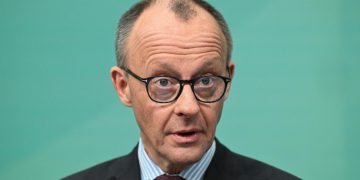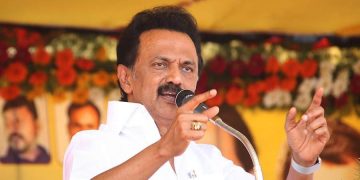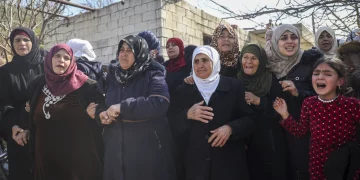The United Nations Conferences on Financing for Development have been great occasions for building consensus on global financing issues. The next meeting, set for mid-2025 in Spain, will continue the progress made previously in Monterrey (2002), Doha (2008), and Addis Ababa (2015), and preparations are already underway with the launch of two major background documents. While a “Zero Draft” will serve as the basis for the negotiations, delegates also will consider a set of proposals from an international commission of experts that I had the honor of coordinating. Both reflect the ambition to build on the Addis Ababa Action Agenda.
The central objective of this process is to support developing countries’ growth strategies. The commission of experts emphasized the need to restore and strengthen the transformative role of the state, envisioning it as a key driver of development and structural transformation. That means emphasizing the quality as well as the quantity of resources that are mobilized, and replacing a short-term project-focused agenda with one geared toward collectively defined longer-term goals. Each task calls for strengthening the currently weakened multilateral system and creating new regional platforms. A crucial issue is public-sector over-indebtedness, which affects about one-third of developing countries, while several others face high debt levels and interest costs. This problem stems from the large fiscal imbalances during the COVID-19 pandemic and the rise in interest rates in recent years. Managing it will require an ambitious short-term renegotiation instrument, which can build on the G20’s 2020 Common Framework for Debt Treatments.
This time, however, the renegotiation process must be faster, and access should be extended to middle-income countries. In the long term, we need a permanent mechanism for sovereign debt restructuring, which could be housed either in the UN or the International Monetary Fund, provided, in the latter case, that it remains independent of the IMF Board. Another urgent objective is to reinvigorate development financing. An estimated $4 trillion more is needed annually to fund the UN Sustainable Development Goals. Mobilizing these resources will require official development assistance on the scale that high-income countries committed to decades ago: “0.7% of gross national income to developing countries and 0.15-0.20% of GNI to least developed countries.” Most developed countries have failed to hit these targets, and the funds directed to low-income countries have actually decreased in recent years.
A second priority in this area is to increase the financing available from multilateral development banks (MDBs) and support the expansion of national development banks’ activities (or the creation of such institutions in the developing countries lacking them). Such efforts must include more financing in local currencies to mitigate the risks of debt escalation from exchange-rate depreciation, and support for the development of domestic bond markets in these countries. Beyond traditional lending, these institutions also should support developing countries’ efforts to provide international public goods such as pandemic preparedness and prevention, climate-change mitigation and adaptation, and biodiversity protection. Increasing environmentally sustainable financing is crucial. While the recent Conferences of the Parties on climate change and biodiversity agreed to more financing, their targets remain insufficient. This is particularly worrying now that biodiversity losses are mounting and global warming has already begun to exceed the 1.5o Celsius threshold set by the Paris climate agreement. In these areas, and in development financing in general, greater private-sector involvement should be mobilized with the help of credits for environmental investments or complementary mechanisms such as loan guarantees from development banks. Building adequate, progressive tax bases is also essential. We need to prevent multinationals from shifting their profits to low-tax jurisdictions and tax havens, and ensure adequate tax payments by the wealthy. The first of these objectives requires adopting the principle of “signifi cant economic presence,” according to which multinationals pay a fair share of taxes in all countries where they operate, including through cross-border services. For rich individuals, a global asset registry based on benefi cial ownership is essential. The UN Tax Convention that is currently being negotiated could foster the international cooperation that these efforts require. But we also will need a coordinating institution, which could be created by transforming the current UN expert committee into an intergovernmental organ. To support developing countries, IMF credit facilities should be improved, and their conditionalities should be revised. But we also need two new Fund instruments: an international swap facility and a fund that can intervene in international markets for emerging and developing countries’ bonds during downswings. These changes should be complemented by more frequent and strategically timed issuances of special drawing rights (SDRs, the IMF’s reserve asset), with the funds fl owing into various mechanisms (including those within MDBs) to finance development or environmental goals while preserving their character as reserve assets. In institutional terms, the most urgent priority is to promote regional monetary arrangements in the developing world. This, one hopes, would lead to a denser system of global and regional institutions, like what one finds with the MDBs.
Also Read: Cabinet OKs proposed changes to Waqf Bill, clears decks for tabling in Parliament: Sources
In trade, the crucial issues are the need to uphold existing tariff commitments made at the World Trade Organization, and negotiating a new agreement to set the limits of industrial policies, but with special and differential treatment for developing countries. It is also essential to include exceptions for intellectual property rights related to health and environmental technologies. And to ensure fairness in the functioning of commodity markets, we must promote greater use of international and national buffer stocks. One issue that past Conferences on Financing for Development have not touched is international financial regulation. Still, several important matters belong on this year’s agenda, including how to design or strengthen regulation of digital financial assets, international credit rating agencies, and international commodity futures markets. A new global investment agreement is also desirable, and existing investment-protection agreements should be revisited to avoid demands against national provisions that protect social and environmental standards.
Finally, several institutional reforms warrant attention. In addition to establishing adequate institutions to manage renegotiation of sovereign debt, oversee international tax cooperation, and bolster international financial cooperation, the world must heed the developing world’s longstanding demand for greater “voice and participation” in the Bretton Woods institutions. That means establishing a fair allocation of capital shares, increasing these countries’ basic votes, and creating more open, inclusive processes for selecting each body’s leadership.






































